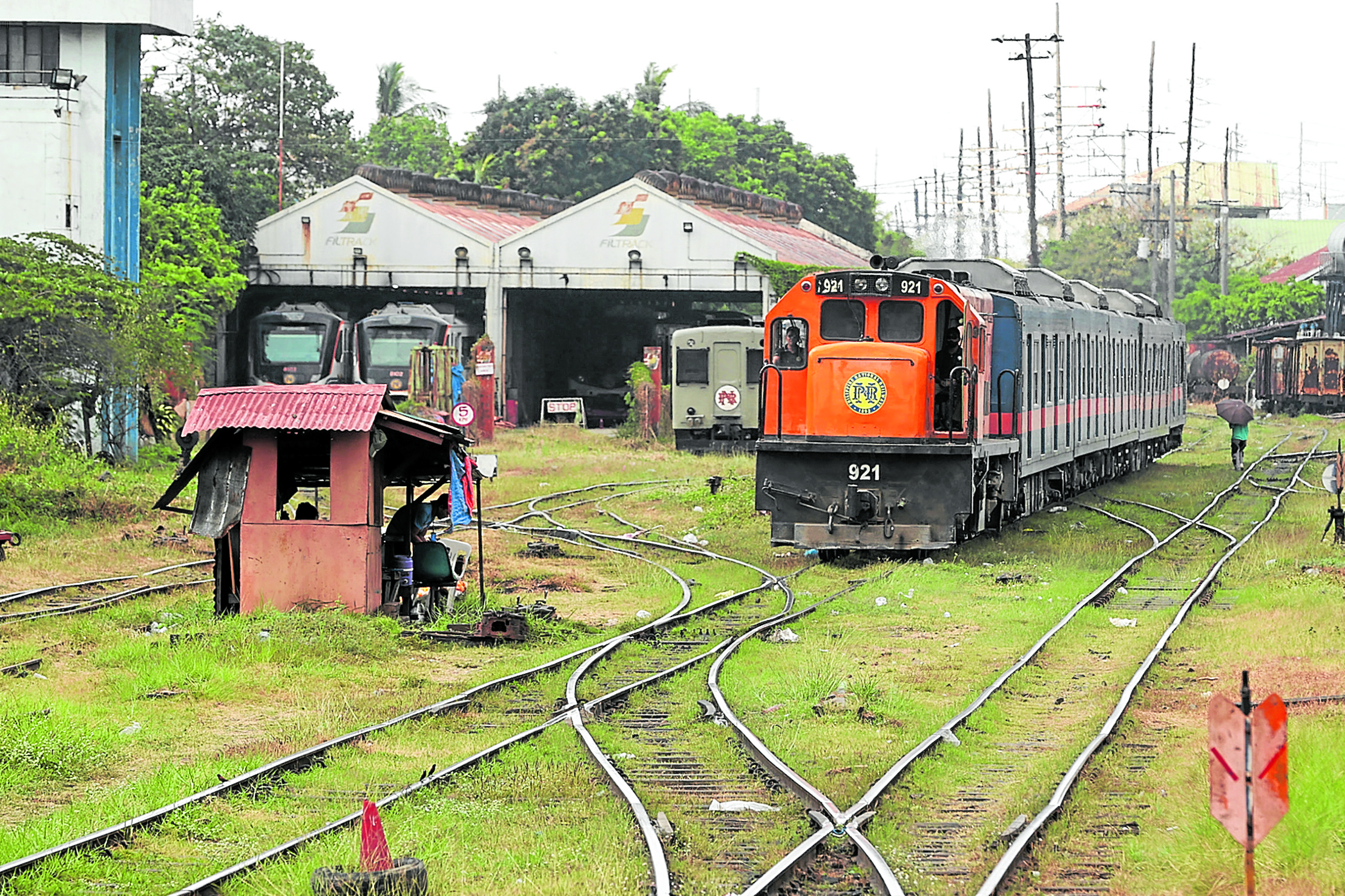5-year closure of PNR line to start March 28

NECESSARY HASSLE Around 20,000 commuters who take the Transportation Undersecretary trains of the Philippine National Railways daily are expected to be affected by the five-year suspension of its operations. The government is offering additional buses and new routes as their next option. —NIÑO JESUS ORBETA
The Metro Manila operations of the Philippine National Railways (PNR), which mainly connects the capital region to neighboring Laguna province, will be suspended for five years starting March 28 to give way to the construction of another railway line, the Department of Transportation (DOTr) said on Friday.
Originally scheduled for May last year, the suspension is finally pushing through and will affect the Governor Pascual-Tutuban and Tutuban-Alabang operations, according to Transport Secretary Jaime Bautista.
The temporary closure is necessary to speed up the completion of the big-ticket North South Commuter Railway (NSCR) project by eight months and save the government some P15.18 billion, Bautista added.
To be built along the same alignment followed by the PNR route, the 147-kilometer NSCR will connect New Clark City in Capas, Tarlac, to Calamba, Laguna.
It will have two lines: the 91-km PNR Clark (Tutuban to New Clark City), and the 56-km PNR Calamba (Solis-Calamba). To link them, the DOTr needs to reconstruct the current Metro Commuter Line, currently entirely at-grade, to turn it into an electrified railway system with elevated stations.
Deferred
The closure was first announced in February 2023 but was deferred as the DOTR opted for partial stoppages first, Transportation Undersecretary Jeremy Regino said.
“However, the NSCR construction activities could not go full-blast if they keep giving way to the PNR train every once in a while,” he said. “So we deemed it best to temporarily halt operations because the NSCR is right smack where the PNR is proceeding right now.”
“We have to set up our posts, pillars in those areas, and move the PNR tracks; so we’re actually doing double-tasking,” Regino said.
READ: PNR weighs other funding options for south rail project
The government also still has to acquire more space along the route to accommodate the different stations, he added. The five-year shutdown is expected to affect some 20,000 commuters who take the PNR trains daily. The numbers go up to 25,000 during the Christmas season, Regino added.
It will be an added concern for the likes of Jenette Gallentes of Pasay City, whose teenage daughter is currently enrolled at the Polytechnic University of the Philippines in Manila and relies on the PNR for her daily commute. The student may now have to take two trains—on Lines 1 and 2 of the Light Rail Transit.
“This affects not just her but also parents like me especially now that prices are so high. I have to increase her allowance (for the extra rides), and this will just worsen her already long commute,” she told the Inquirer.
Bus options
The DOTr and the Land Transportation and Franchising Regulatory Board (LTFRB) have set up alternative bus routes to cater to passengers who will be inconvenienced by the suspension.
Buses on the Tutuban route to Alabang and vice versa are expected to drop off and pick up passengers near the current PNR route.
The southbound buses will pass through Divisoria (Tutuban), Mayhaligue Street, Abad Santos Avenue, Recto Avenue, Legarda Street, Quirino Avenue, Nagtahan Flyover, Mabini Bridge, Quirino Avenue, Osmeña Highway, Nichols Entry, South Luzon Expressway (SLEx), Bicutan Exit, Bicutan Entry and Alabang (Starmall).
The northbound buses will pass through Alabang (Starmall), Manila South Road, East Service Road, Alabang (Entry), SLEx, Bicutan Exit, Bicutan Entry, Nichols Exit, Osmeña Highway, Quirino Avenue, Legarda Street, Recto Avenue, Abad Santos Avenue, Mayhaligue Street, and Divisoria (Tutuban).
The bus trips on the Tutuban-Alabang (Southbound) route will start at 7:30 a.m., 9:10 a.m., 3 p.m., 3:20 p.m., 7:30 p.m., and 9 p.m. On the other hand, the bus trips on the Alabang-Tutuban (Northbound) route will start at 5 a.m., 6:30 a.m., 11:00 a.m., 11:45 a.m., 5 p.m. and 6:10 p.m.
Regino said the fares for these bus routes would be based on the standard LTFRB matrix, which is slightly higher than the current PNR rates.
Long walks ahead?
But commuter welfare advocates doubted whether the DOTr’s plan to replace the PNR service with just 25 dedicated buses would be feasible.
READ: Tugade: PNR Malolos to Clark segment to generate 7,000 direct jobs
AltMobility convenor Ira Cruz said some of the proposed bus stops would be located 450 meters away from the PNR stations. In Sucat, he noted, the distance is “4.6 km.”
“Can you imagine subjecting people to walk this distance, in an environment where we have underdeveloped pedestrian infrastructure? This would likely add to household expenses,” he said.
Cruz called on the DOTr to ensure that affected commuters would be sufficiently guided about the bus routes and stops and to provide additional facilities, road markings, or directional signs for their comfort and safety.
Anton Siy, an economist focusing on the transport sector, said the PNR closure should make it more urgent to “promote sustainable mobility via cycling and e-bikes.”
These other modes of transport “can fill (the) gaps and I hope needs like these will be considered by bodies like the Land Transportation Office and the Metro Manila Council (MMC) when they further refine their policies,” Siy said.
The MMC, however, recently moved to prohibit e-bikes or e-trikes on national roads, imposing a P2,500 fine on violators of the ban.